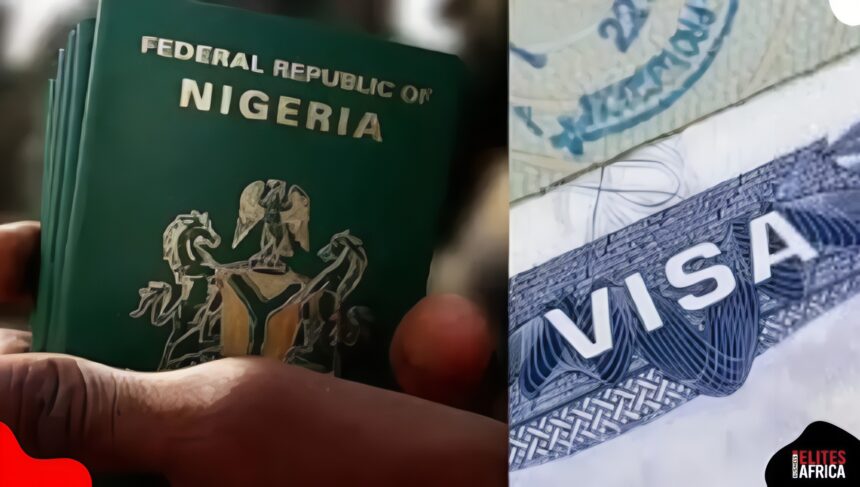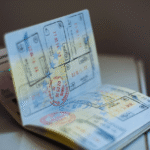The Economic and Financial Crimes Commission (EFCC) has disclosed that internet fraudsters, popularly known as Yahoo Boys, are the ones fueling visa restrictions for Nigerians.
The anti-graft agency claimed that the Yahoo boys have been tarnishing Nigeria’s international reputation and complicating travel for millions of law-abiding citizens.
EFCC Chairman Ola Olukoyede made this known at an event organized by the Coalition of Nigerian Youth on Security and Safety Affairs (CONYSSA) in Port Harcourt, Rivers State.
Speaking through his representative at a youth security event, the Chief Superintendent of the EFCC, CSE Coker Oyegunle warned that the surge in internet fraud is not only devastating the economy but also leading to stringent visa policies from countries worldwide, affecting innocent Nigerians who have nothing to do with these illicit activities.
Oyegunle claimed that Yahoo boys engaged in scams like romance fraud, advance-fee schemes, and money laundering, fueling visa restrictions for Nigerians and eroding the country’s global standing.
This was also contained in a press statement issued by the EFCC on Wednesday, September 17, 2025.
“The EFCC boss highlighted that internet fraud, money laundering, and economic sabotage cost Nigeria billions of naira annually, undermining national growth and depriving citizens of infrastructure, jobs, and opportunities.
“Beyond the economic damage, he pointed out that the crimes erode Nigeria’s international image and subject innocent Nigerians to stricter visa restrictions abroad,” the statement reads in part.
He urged young people in the South-South and across the country to channel their energy into productive ventures such as digital innovation, entrepreneurship, agriculture, and the creative industry.
He was quoted as saying, “Fraud is not success; it is a trap. Easy come, easy go. Many who follow the path of ‘yahoo-yahoo’ always end up losing their freedom, reputation, and future. The law is catching up with them and digital footprints never disappear. Don’t destroy your tomorrow with shortcuts today.”
Pan-Atlantic Kompass reports that this comes after the United States Department of State recently announced an update to its non-immigrant visa policy for Nigerian citizens.
According to a press release issued by the US Embassy in Abuja, most non-immigrant and non-diplomatic visas issued to citizens of Nigeria will be single-entry visas with a three-month validity period and the new visa restrictions take immediate effect.
The U.S. embassy, in the statement also explained that the move was part of the department’s global visa reciprocity process, which the embassy described as continuous and is subject to review and change at any time, such as increasing or decreasing permitted entries and duration of validity.
It also explained the rationale behind the policy update, noting that “U.S. visa criteria and standards are designed to protect the integrity of US immigration systems,” adding that these standards are based on global technical and security benchmarks.
Similarly, the United Arab Emirates, introduced stricter visa restrictions for Nigerian travellers.
The new visa policy declared that Nigerian travellers between the ages of 18 and 45 are no longer eligible to apply for tourist visas unless accompanied by a sponsor or unless they meet newly defined conditions.
In addition, transit visa applications by Nigerian nationals have been suspended entirely, effectively barring stopovers in the UAE for onward travel.
Individuals above 45 years applying for a tourist visa must now present a personal bank statement for the past six months, showing a minimum monthly balance of $10,000 or its naira equivalent.
Also, all travellers to the UAE are required to show proof of hotel reservations and sufficient funds (5,000 dirhams) to cover their stay.
The new round of visa restrictions for Nigerian nationals, introduced less than a year after both countries resolved a long-standing diplomatic rift over visa issuance, indicates that the UAE may have foreclosed the assumption that Nigeria is a target market for tourism.
According to updates issued to travel agents, the new rules also impose stringent financial requirements on applicants above 45 years. Individuals in this category must now submit a personal six-month bank statement showing a minimum monthly balance of $10,000 (or its naira equivalent) before their visa application will be considered.





